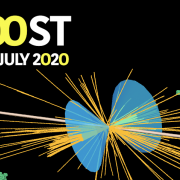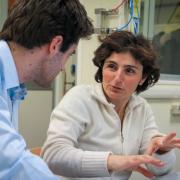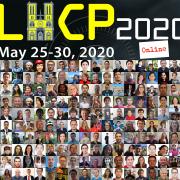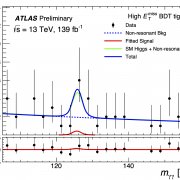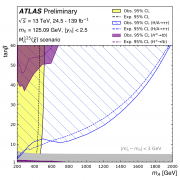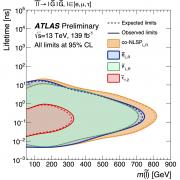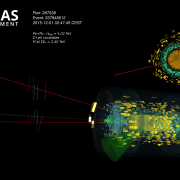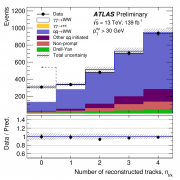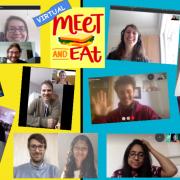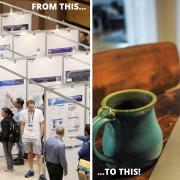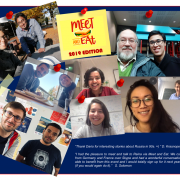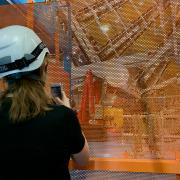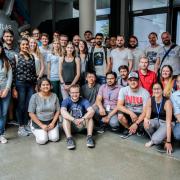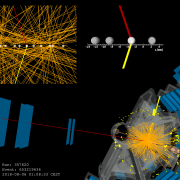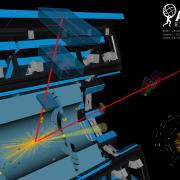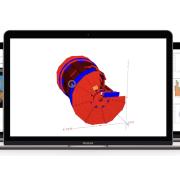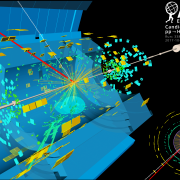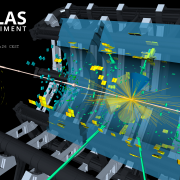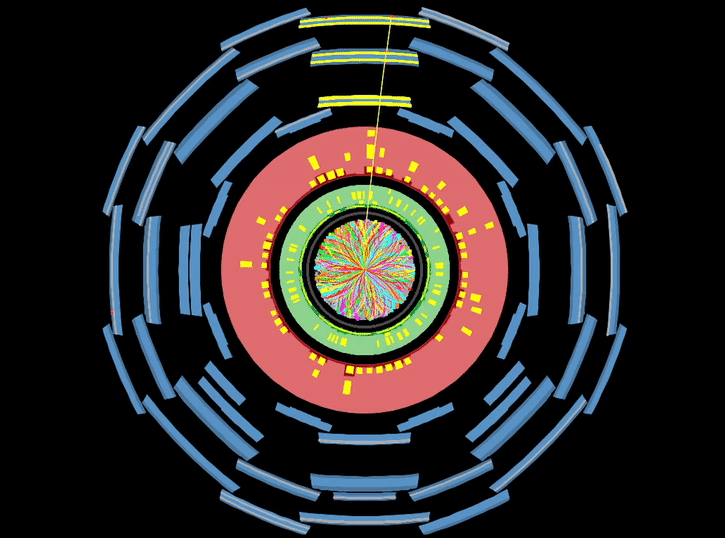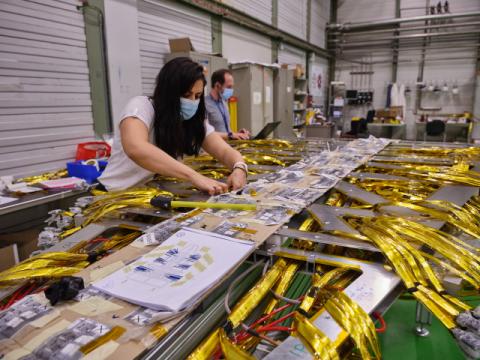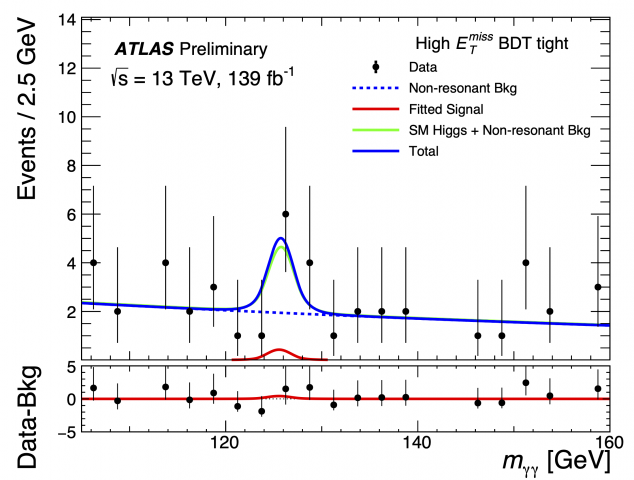Access to Collaboration Site and Physics Results
Updates tagged: “ATLAS Collaboration”

A Few Missing Steps
After a long hiatus from US ATLAS, I recently started a new job at the Lawrence Berkeley National Laboratories. It's one of the few remaining labs in the US funded by the Department of Energy that does basic science research. It's the fourth job I've had in four years, all working on ATLAS, and all working on similar projects. This one is different, though: if I pass a performance review a few years from now, I'll have the lab-equivalent of tenure. I've had reactions ranging from "who did you have to kill to get that job" to "so who did you actually talk to to land that"?
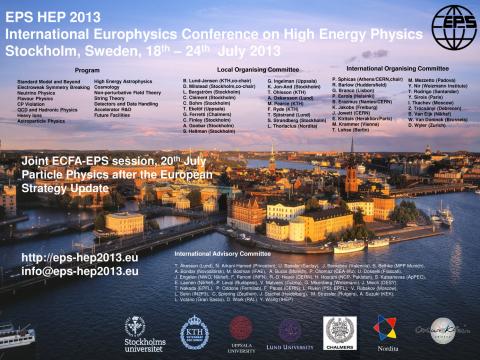
New Results for EPS
ATLAS physicists will be presenting new results at the biennial Europhysics conference on High Energy Physics this year. The conference, which will take place 18 to 24 July in Stockholm, Sweden, is organized by the High Energy and Particle Physics Division of the European Physical Society (EPS).
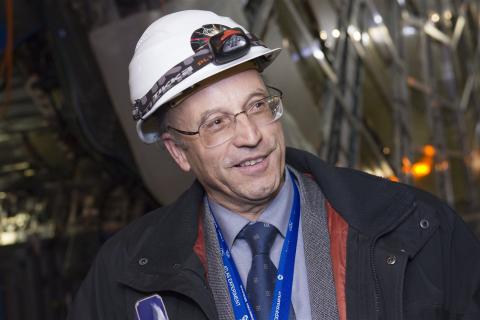
Everyone Here Is Motivated By Physics
In June 1993, ATLAS and CMS were given the provisional go-ahead to submit technical proposals. Twenty years later, for the discovery of the Higgs boson, the European Physical Society has awarded the High Energy and Particle Physics Prize 2013 to the research teams of the ATLAS and CMS experiments. For their “pioneering and outstanding leadership roles in the making” of the experiments, the prize also goes to ATLAS' Peter Jenni and CMS' Michel Della Negra and Tejinder Virdee. We talked to Peter Jenni, who was spokesperson of the ATLAS collaboration for the first 15 years, on ATLAS' past and future.
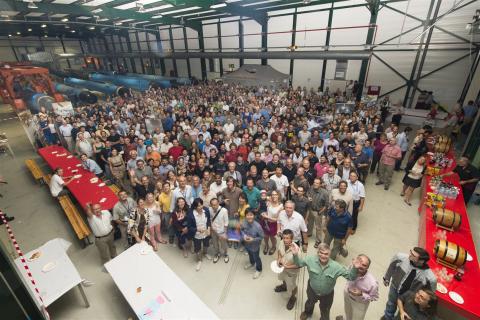
2012: A Year for Science – A Year for Discovery
Amazing, incredible, emotional. These are uncommon words for summarizing the annual accomplishments of a particle physics experiment. Yet 2012 has been a fantastically uncommon year for ATLAS, one of the main experiments at CERN: marvellous machine performance, numerous and interesting physics results, plenty of interactions with students and general public, and - last but not least - a major discovery!
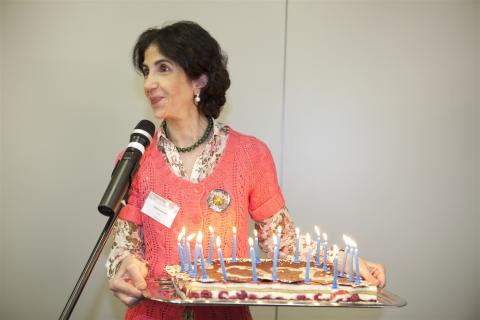
Happy Birthday ATLAS!
Twenty years ago the name “ATLAS” was first used on an official document, the Letter of Intent, to refer to the detector which has been taking data for nigh on three years now, including those data on which the recent Higgs results were based. It has been two decades of growth, development and hard work, resulting in this year’s observation of a Higgs-like particle. All the more reason for the experiment to take a few moments to look back and celebrate.

Melbourne Dispatch: A First Coming To Terms with Discovery
Where to begin? The 4th of July, 2012 will remain burned in the memories of those of us fortunate to be delegates at this historic 36th International Conference on High Energy Physics (#ICHEP2012) in beautiful Melbourne, Australia.
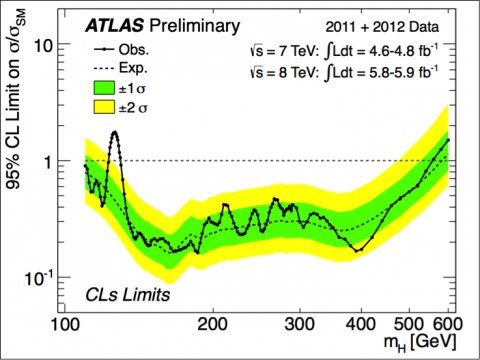
Very exciting day at CERN about the Higgs??!
Good morning science addicts and everyone! What a special day at CERN today! Indeed, the ATLAS and CMS experiments have just released some outstanding results and observations about the search for the Higgs boson, and the ATLAS and CMS spokespersons (Fabiola Gianotti, and Joe Incandela) just presented those results in the main auditorium at 9 a.m (CERN time).
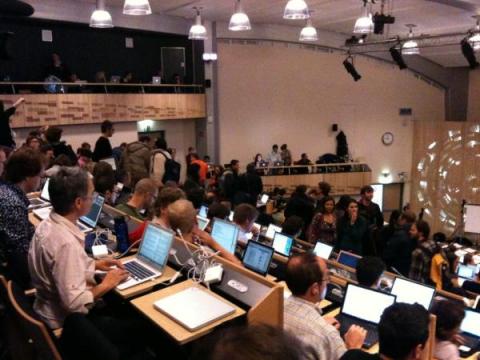
Tweeting live #Higgs boson updates from #CERN
“If it’s just a fluctuation of background, it will take a lot of data to kill.” Dr. Fabiola Gianotti, spokesperson for the ATLAS collaboration, made this statement on Dec. 13, 2011 during a special seminar I attended at CERN. Within the minute that followed, I hurriedly concocted a tweet, tacked on #Higgs and #CERN hashtags, and sent Fabiola’s weighty comment out onto the WWW.
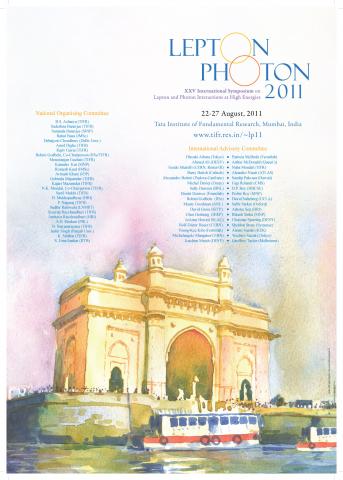
Top down: Reflections on a long and sleepless analysis journey
For the last months (which feel like years…) I’ve been working, within a small group of people, on the precision measurement of the top quark pair production cross section, and if you think that sounds complicated – the German word is “Top-Quark-Paarproduktionswechselwirkungsquerschnitt”.

Martin Rybar
There is usually a defining moment, or event, that leads a person to science. For 10 year old Martin Rybar, it was the moment when he found the chemistry laboratory kit from his uncle in his parents' house. Curiosity has always been the main driving force in science – and Martin was no exception.




